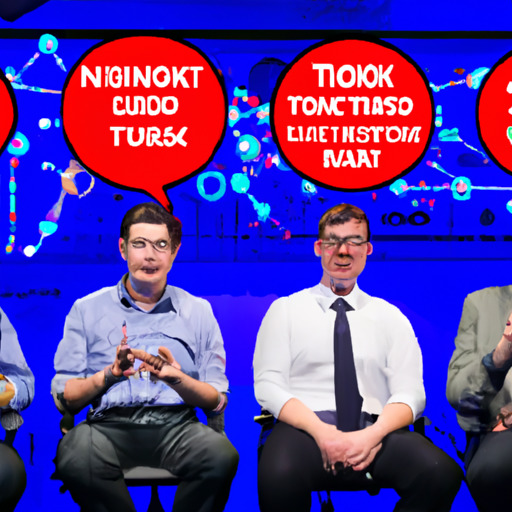Advancements in technology have continuously pushed the boundaries of what is possible. From AI-powered search engines to futuristic gadgets, we are living in a world where innovation is the norm. However, with great power comes great responsibility, and the demand for energy to sustain these advancements is ever-increasing. One of the key components in technology is the battery, and researchers have recently made a breakthrough discovery that has the potential to change the game. In a recent article published by The Washington Post, the exciting news of a new battery material that uses less lithium and its implications on AI-powered search was reported. This groundbreaking discovery has the potential to revolutionize the way we use and rely on technology.
The Washington Post reported that a team of researchers from MIT and other universities have developed a new battery material that uses less lithium, addressing the issue of lithium scarcity and its environmental impact. Lithium is a crucial element used in most batteries, but its scarcity has caused concerns in the industry. The new material, called “ligand-atic” material, has shown to be more efficient in storing and releasing energy compared to traditional lithium-ion batteries. This means that devices can run longer without needing to be charged, and could potentially lead to smaller and lighter batteries in future gadgets.
The discovery of this more efficient battery material is significant not just for the tech industry, but also for the environment. The mining and production of lithium takes a toll on the environment, and the demand for it is only expected to increase as technology continues to advance. With this new material, the reliance on lithium can be reduced, and the negative impact on the environment can be lessened. This has the potential to make technology more sustainable and eco-friendly in the long run.
One of the most exciting implications of this discovery is its potential impact on AI-powered search engines. These search engines rely heavily on data processing and require a lot of energy to function. With the new battery material, they will be able to run for longer periods without needing to be charged, making them even more efficient and powerful. This opens up possibilities for the development of more complex and advanced AI systems, potentially leading to groundbreaking innovations in fields such as healthcare, finance, and transportation.
However, as with any new discovery, there are still challenges and obstacles to overcome. The new battery material is still in its early stages of development, and further research and testing is needed before it can be available commercially. It is also important to consider the scalability and cost of production for this new material. However, the potential benefits outweigh these challenges, making this discovery a promising step towards a more sustainable and advanced future.
In conclusion, the discovery of a new battery material that uses less lithium is a game-changer in the world of technology and beyond. From its potential impact on the environment to its implications on AI-powered search engines, this breakthrough has the potential to revolutionize the way we use and develop technology. We can only imagine the endless possibilities that this new material will bring, and we eagerly await its development and integration into our daily lives. As we continue to push the boundaries of innovation, it is important to keep in mind the significant impact it could have on our planet, and this discovery is a step towards a more sustainable future.
